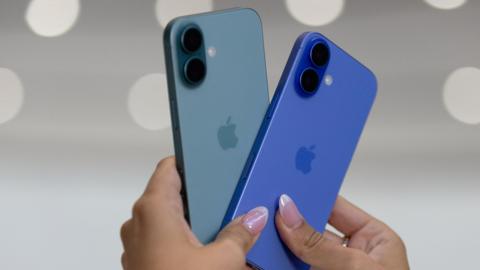Apple have not revealed yet whether they plan to pass on the costs of the tariffs onto consumers in the US and increase prices.
Some analysts believe Apple is in a more fortunate position than others, having reaped more money from its products than it has spent on making them.
"As a company with lucrative margins on its devices, Apple can absorb some of the tariff-induced cost increases without significant financial impact, at least in the short term," says Forrester principal analyst Dipanjan Chatterjee.
But he notes the company's strong branding and popularity may allow it to pass some costs to consumers without too much backlash.
"The brand commands better loyalty than its competitors, and it is unlikely that a manageable price increase will send these customers fleeing into the arms of Android-based competitors."
Some estimates suggest iPhone prices in the US could as much as triple if costs were passed to consumers.
Following Trump's tariff increase on China to 125%, the cost for a China-made iPhone 16 Pro Max with 256GB storage would have surged from $1,199 to $1,999, according to estimates by investment banking firm UBS.
They estimate a less significant increase on the iPhone 16 Pro 128GB storage - which is made in India - by five percent from $999 to $1046.
While some analysts such as Dan Ives have suggested that the cost of a "Made in USA" iPhone could soar to as much as $3500.
